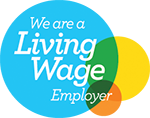
Here is a caption
Posted by Sharon Elliott on 9 December 2016
Following swiftly on proposals laid out in the chancellor's Autumn Statement, the government has published draft regulations on tax changes which will impact negatively on the self-employed. Tony Lennon, BECTU's research officer, explores the effect of the changes on BECTU members.
Flat Rate VAT scheme
Restrictions announced in the Autumn Statement have now been published as draft Regulations, putting "limited cost traders" in a position where any VAT they charge customers is all handed over to HMRC, with no facility to offset it against VAT they have paid on bills that the business has incurred.
This affects any BECTU member registered for VAT and using the flat-rate scheme, whether a self-employed sole trader, or a personal service company. To avoid a new 16.5% flat rate, and remain on their historic flat-rate percentage (typically 13%) they will have to demonstrate that they have spent at least £5,000 on VAT-rated purchases annually, excluding food, drink, fuel, vehicles, capital goods, services, and any purchases of items apportioned between business and personal use.
If they are short of this threshold, or if the resulting £1,000 VAT is less than 2% of their turnover, they become limited cost traders subject to the 16.5% rate. Since the exclusions from the threshold represent the bulk of any purchases our VAT-registered members make, most will cease to benefit from the flat-rate scheme, and with no ability to reclaim input VAT except by taking on the accounting burden of full-blown, accrual-based, VAT, many are likely to de-register.
HMRC plan to run an 8-week consultation which BECTU will be responding to. The new arrangements take effect on April 1 2017, and there will need to be separate billing before and after that date for any assignments that fall across it.
Off-payroll working in the public sector
The Finance Bill, which will take effect on April 6 2017, lays out details of the change for tax liability for public sector bodies engaging workers through personal service companies. From that date any entity covered by the Freedom of Information Act will be liable for any unpaid PAYE and NIC if workers engaged through PSCs are subsequently deemed to have been in an employment relationship, in line with the IR35 intermediaries provisions.
Under the FoI Act, subsidiaries of public entities are covered by this new rule, so in addition to the BBC, Channel 4, and S4C, we now know that companies like BBC Studioworks, BBC Studios Ltd, and Channel 4 Films, will be obliged to make a judgement about their relationship with PSCs, partly based on an online employment status tool that HMRC plans to launch.
We can safely predict that all these entities will err on the side of caution, putting several members who are legitimately operating businesses in their own right onto PAYE when working in the public sector, and posing problems for self-employed members in the private sector if their grade or relationship with eneagagers is determined to be that of employee by someone like the BBC.
BECTU strongly objected to this change in a recent consultation, but it is now set to go ahead.
Class 2 National Insurance
Draft legislation confirms that Class 2 NIC will be abolished from April 2018, and self-employed members whose business profits fall short of the Small Profits Threshold (currently £5,965 a year) will need to top up their NIC payments using Voluntary Class 3 NICs, currently £14.10 a week. This means the low-paid self employed will have to pay considerably more to secure contributory benefits like state pension than the £2.80 per week that Class 2 NIC costs.
In the longer term, the Office for Tax Simplification is working its way through a project to align NICs with PAYE, probably turning the employer's contribution into a straightforward payroll tax, and counting the employees' NIC on an annual basis, like income tax, rather than the current weekly or monthly basis. Initial modelling by OTS indicates that there will be significant numbers of winners and losers, with higher-paid workers generally losing out, and so-called "multi-jobbers", workers with more than one source of employment income, being particularly badly hit. Any changes will not take effect for at least three or four years.
Read more on the issues here and support the campaign to challenge the changes by writing to your MP.
Comments
- Michael Bolsover 10 December 2016
- Are we having a campaign about this. I would like to get a big response from Freelancers everywhere. This must affect thousands of small business freelancers in other industries too. It flies in the face of the government's constant mantra of promising to reduce red tape for small businesses. The Government paved the way for the industry to go largely freelance, and this is what we get as a reward, a pay cut.
I will help in any campaigning we need to do. These MP's with their tax free fully paid expenses do not understand the lives of ordinary workers in today's Britain. They are insulated and cushioned from the harsh financial realities in the real world. - Sharon at BECTU 17 December 2016
- Thanks Michael and for the offer of help. I'm confident we'll be mobilising to challenge the plans. Till the New Year.
Sorry, comments are not currently enabled for this post.

